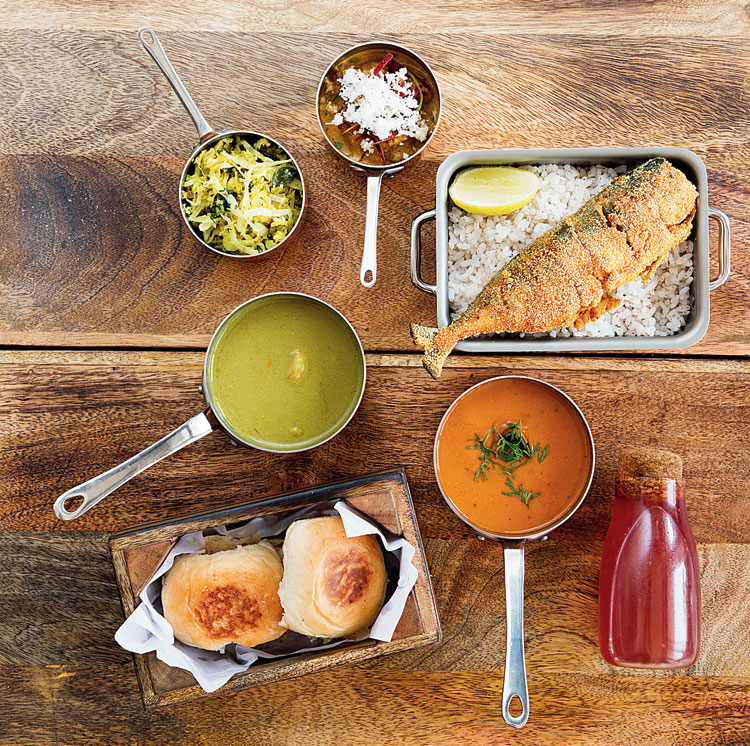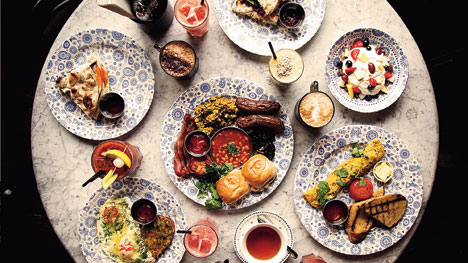Da Nerbone is an institution on the ground floor at the back of the Central Market. They are known for their lampredotto (tripe), which they serve with salsa verde and chilli sauce either in a crusty bun or cooked with onions and served with bread on the side. They also have a couple of salads, pasta with pesto and beef slices. That’s it. It’s cheap, cheerful and very local. There are even tables and communal seating and since the turnover is super fast, you’ll always find a place to sit. It closes, as does the ground floor of the market, at 2pm sharp.
On the first floor is a marvellous collection of restaurant spaces serving everything from delicious wood-fired pizza, pasta made in front of you, an Eataly gourmet store, a vegan and vegetarian eatery and other more serious places where you buy your T-bone steak or seafood by the kilo and have it cooked for you. A long bar in the centre caters to all your “spiritual” needs and most vendors speak English. You’ll see mostly tourists, travellers and young Italians, the food is reasonable and affordable, loos are clean and free Wi-Fi is available. It is open all-day long even when the market downstairs is closed for the day.
In the streets near the market you’ll find some excellent salumeria (delicatessens) selling salami, ham and cheese. Do try the local salami finocchiona made with aniseed. Highly recommended for wine lovers is the wine shop Zanobini on Via San Antonio.
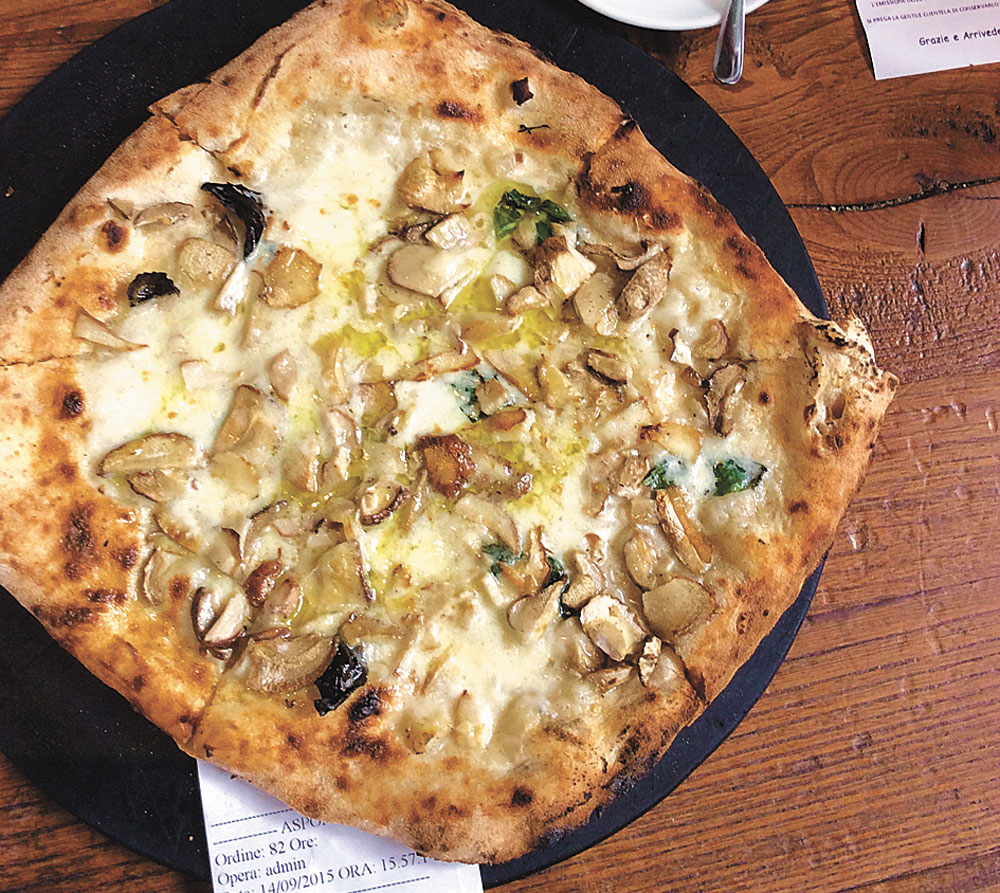
Porcini pizza at Central Market Image credit: Karen Anand
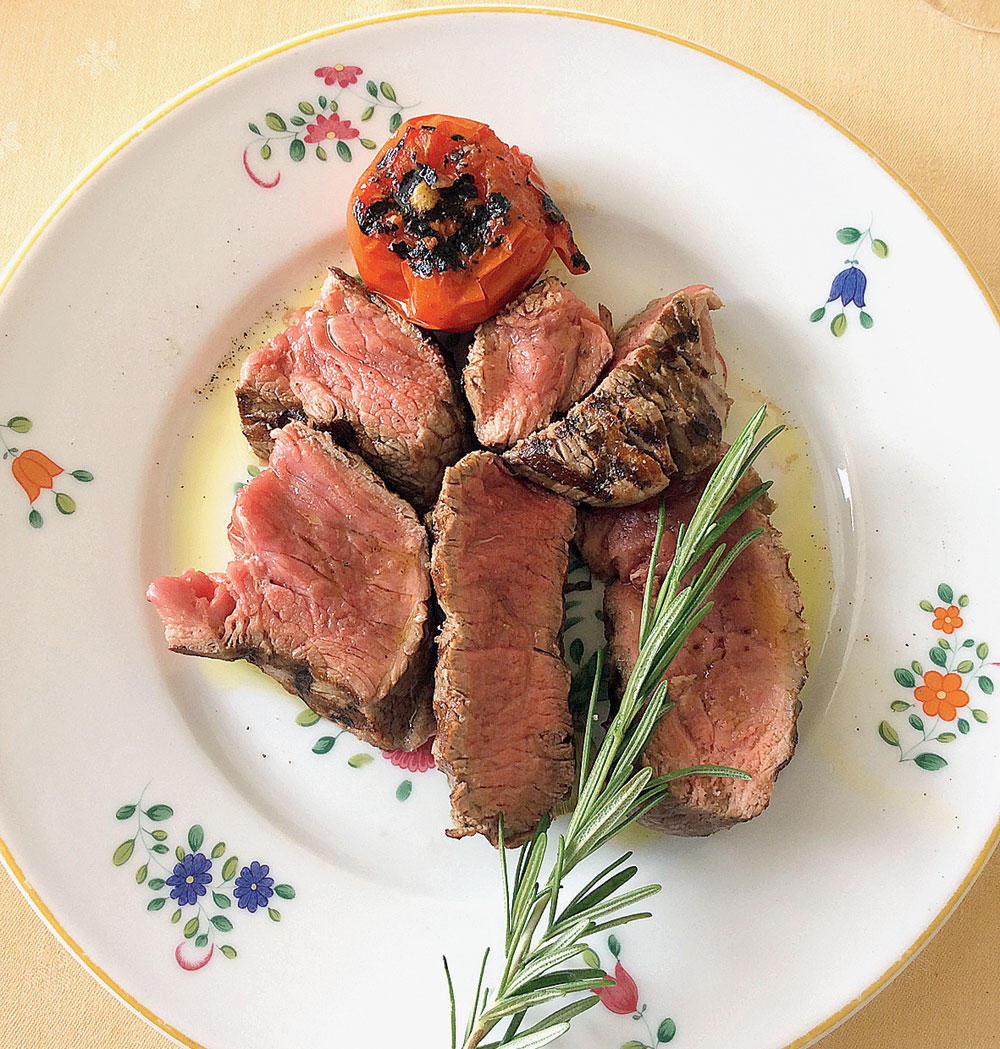
If you are at Belmond Villa San Michele, enjoy Bistecca alla Fiorentina or take a private cooking class to learn the art of making Riga gnocchi Image credit: Karen Anand
RENAISSANCE RELOOK
We stayed in the fantabulous Belmond Villa San Michele, the ultimate in luxury and service in the hills of Fiesole, about 20 minutes by car from bustling downtown Firenze. An air-conditioned shuttle bus takes you to and from central Florence every hour. The architecture and approach is stunning and fits in the theme of ‘Country Renaissance’. It was a 15th century monastery whose facade was said to be designed by Michelangelo (yes, the same one) and finished by a well-known local architect. We stayed in the relatively newer rooms on the hillside — a nice walk up and down and with the added advantage of your own private terrace.
It is every bit the scene of Tuscany I was expecting — the whiff of wild rosemary and lavender as you meander through the terrace gardens, poplars and cypresses framing the picture perfect countryside and stone paths leading to the village of Fiesole. The terrace of the main building is called La Loggia and is the place to have a drink or dinner with the most spectacular view of the city of Florence.
Double-breasted jacketed waiters ply up and down giving the best possible service to all the well-heeled guests. It’s a bit of magic. We order a Bistecca alla Fiorentina, a really simple dish — a big fat T-bone or porterhouse steak sourced from the Chianina breed of cattle. Grilled over wood or charcoal, sprinkled with salt and pepper, basted with olive oil and fresh rosemary, cut into thick slices in front of you and served with some equally thick-cut grilled vegetables and white beans. Nothing fancy at all. Just a really good, juicy piece of meat for two hungry people.
Another treat at the Belmond Villa San Michele is a private cooking class overlooking the herb garden with executive chef Attilio di Fabrizio. Even the husband got his hands dirty. We made Riga gnocchi, little potato dumplings which you create by sliding them off a board with ridges. This way the sauce, we were told, clings onto the grooves made by the board. The whole process has to be done by hand. We also made a simple sauce with baby tomatoes, garlic and fresh basil. Tuscan food is rustic and simple because the produce is perfect. If your ingredients aren’t 100 per cent fresh, the dish just won’t be the same.
Florence grows on you. Close your eyes to the tourist traps and enjoy the country sophistication on offer.
Karen Anand is a culinary consultant, food writer and entrepreneur. In recent times her name has been synonymous with farmers’ markets.

Mercato Centrale or Central Market is where you get some of the best Tuscan food ingredients and Italian fare Image credit: Karen Anand

Riga gnocchi Image credit: Karen Anand
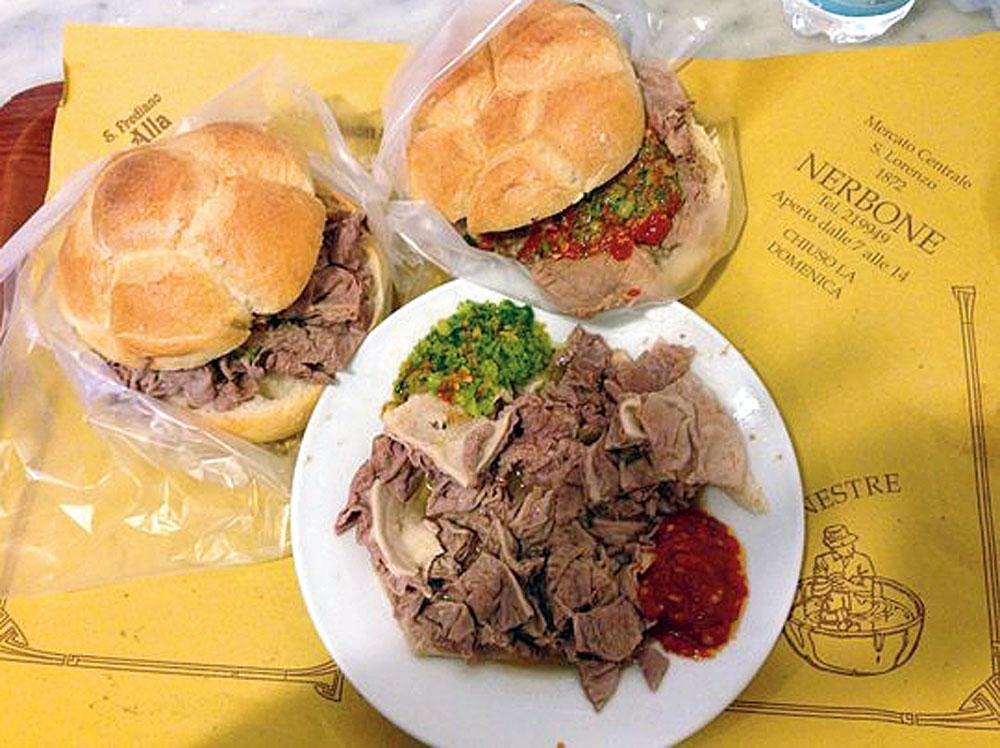
Visit Da Nerbone in Central Market for lampredotto (tripe) Sourced by The Telegraph

Belmond Villa San Michele Image credit: Karen Anand
Florence grows on you. This is my third trip and after you’ve done the predictable touristy things, like visiting the Uffizi, the Accademia (primarily to see Michelangelo’s sculpture David which is well worth it) and the Cathedral of Santa Maria del Fiore (commonly known as the Duomo), discover some of Florence’s little secrets as we did. Staying in Fiesole up in the hills looking down on Florence was the best decision we made.
First, where to eat?! Procacci is a little breath of Florentine fresh air in the heart of the city near the Piazza della Repubblica serving little rolls stuffed with the most divine truffle cream. Six high tables and cushioned chairs, polite staff who speak English and no whiff of anything touristy here. This is strictly for locals.
Then there is Cantinetta Antinori owned by the famous Antinori wine family in Tuscany. They serve predictably great Tuscan wines and crostini with baby livers in a salsa verde to die for. It is cosy and comfortable despite being on the upmarket and central (Via de’ Tornabuoni).
Central Market is known locally as Mercato San Lorenzo since the San Lorenzo church is next door. It is surrounded by tourist stalls selling leather bags of dubious origin but don’t let this put you off. It is one of my favourite markets in Italy. On the ground floor is a working daily market for locals; meats, cheese, fruit and vegetables rub shoulders with stalls selling dried baby tomatoes, cantucci biscuits and dried porcini mushrooms.
HAPPY FEET
Florence is associated with the first family of Italian fashion, the Ferragamo’s. We drop into Il Borro Tuscan Bistro and on a later trip I meet Salvatore there for lunch! It is part of the Ferragamo family business and there are now branches in Dubai as well as the original in the Tuscan countryside on their Relais & Chateau estate called Il Borro.
The food is simple but the wines which are from the Il Borro estate include a Super Tuscan aptly called Alessandro dal Borro, a 100 per cent Syrah wine; Polissena, which is 100 per cent Sangiovese and a real example of a true Tuscan ‘salt of the earth’-style wine; and a lovely Vin Santo or dessert wine.
Next door is the Salvatore Ferragamo museum which traces the history of the grandfather and shoemaker Salvatore from his birth in Naples to his 12 years in California and in particular in Hollywood where he made bespoke shoes for the rising stars of cinema — Mary Pickford, Pola Negri, Gloria Swanson and Joan Crawford. Thanks to his creativity and craftsmanship and the comfort of his shoes (for which he took university lessons in California on the anatomy of the foot), the name of Ferragamo became known for quality shoes, original designs and a perfect fit. Audrey Hepburn, Marlene Dietrich, Marilyn Monroe, Ava Gardner and Eva Peron were few of his clients.
Florence is known for leather. The Gori family who have their studios, shop and factory off the Piazza Santa Croce, down a tiny lane, are also open to the public. They have a free 15-minute tour or a more elaborate tour around their establishment and also run short- and long-term courses in the making of leather accessories.


